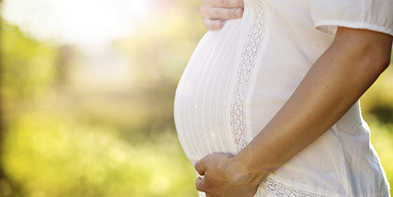entertains, educates & inspires marriages
Find Marriage Answers
health
Study: U.S. Women Having Babies Later Than EverThe U.S. government's latest data on first-birth mothers has spiked in the last five years.

DepositPhoto
Mothers in the U.S. are giving birth to their first child later than ever.
“ Teens' increased awareness of the realities of pregnancy, and greater job and education opportunities for women, are among factors behind the change.”
|
ATLANTA (REUTERS) - Women in the United States are waiting longer than ever to have babies, with the average age for first childbirth rising to a record high of 26.3 years as fewer teens give birth and adults postpone parenthood, a federal study found in January 2016.
First births to mothers under age 20 dropped 42 percent from 2000 to 2014, from 1 in 4 births to 1 in 7, according to the U.S. Centers for Disease Control and Prevention study.
Overall, the average age at which women had their first child increased to 26.3 years in 2014 from 24.9 years in 2000.
Teens' increased awareness of the realities of pregnancy, and greater job and education opportunities for women, are among factors behind the change, said CDC demographer T.J. Mathews, adding that the United States still has a younger average childbearing age than countries in Europe and Asia.
The U.S. trend accelerated between 2009 and 2014, the most recent years studied, according to researchers, although the report did not break out statistics for that time frame.
"We've seen these trends for decades, but the uptick in the last five years of the data was surprising," said Mathews, one of the authors of the study.
Women are delaying parenthood across race and ethnic groups and geographically, the study found. The District of Columbia and Oregon had the largest age spikes, according to the study, which did not provide an explanation.
Increases ranged from 0.7 years in New Hampshire to more than three years in the District of Columbia. States with larger increases tended to be in the western United States.
Increased understanding of the difficulties of having a baby as depicted in reality television shows may have contributed to the decline in younger mothers, Mathews said.
"Maybe we’re getting smarter about these things," he said, noting that the U.S. teen birth rate remains higher than in other developed countries.
At the same time, older women continue to wait to begin having children, Mathews said, also citing more contraception choices as a factor.
The childbearing age may continue to rise, he added.
"We are up to 26.3 in the United States, but there are countries in Europe and parts of Asia that are over are 30," he said, noting that some U.S. populations already see that shift.
"We see groups in the United States, particularly Asian and Pacific Islanders that are edging toward 30," he said.
(Editing by Letitia Stein and Andrew Hay)
First births to mothers under age 20 dropped 42 percent from 2000 to 2014, from 1 in 4 births to 1 in 7, according to the U.S. Centers for Disease Control and Prevention study.
Overall, the average age at which women had their first child increased to 26.3 years in 2014 from 24.9 years in 2000.
Teens' increased awareness of the realities of pregnancy, and greater job and education opportunities for women, are among factors behind the change, said CDC demographer T.J. Mathews, adding that the United States still has a younger average childbearing age than countries in Europe and Asia.
The U.S. trend accelerated between 2009 and 2014, the most recent years studied, according to researchers, although the report did not break out statistics for that time frame.
"We've seen these trends for decades, but the uptick in the last five years of the data was surprising," said Mathews, one of the authors of the study.
Women are delaying parenthood across race and ethnic groups and geographically, the study found. The District of Columbia and Oregon had the largest age spikes, according to the study, which did not provide an explanation.
Increases ranged from 0.7 years in New Hampshire to more than three years in the District of Columbia. States with larger increases tended to be in the western United States.
Increased understanding of the difficulties of having a baby as depicted in reality television shows may have contributed to the decline in younger mothers, Mathews said.
"Maybe we’re getting smarter about these things," he said, noting that the U.S. teen birth rate remains higher than in other developed countries.
At the same time, older women continue to wait to begin having children, Mathews said, also citing more contraception choices as a factor.
The childbearing age may continue to rise, he added.
"We are up to 26.3 in the United States, but there are countries in Europe and parts of Asia that are over are 30," he said, noting that some U.S. populations already see that shift.
"We see groups in the United States, particularly Asian and Pacific Islanders that are edging toward 30," he said.
(Editing by Letitia Stein and Andrew Hay)
Leave a Comment
|
|
|
|
threshold | life | money | sex | blog | married life social network | partners | directory | wine club | podcasts | newsletters | subscribe | advertise | contact us | press releases | archives | privacy policy
Copyright © 2023 Hitched Media, Inc. All rights reserved. | hitched - entertains, educates & inspires marriages |


